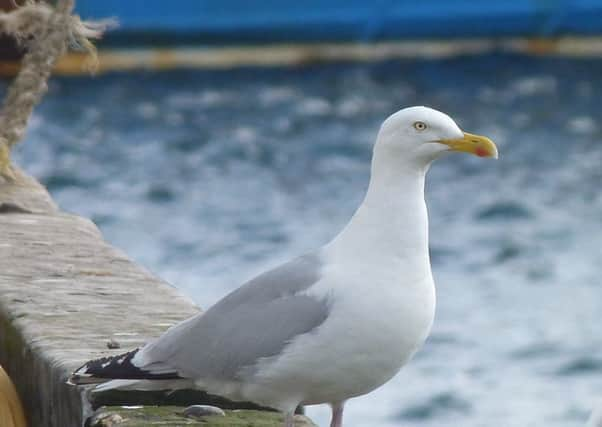Pensioner left bleeding and in tears after seagull attack


Christine Kerr, 73, was smacked in the face as she walked home from a trip to her local post office in Ardler, Dundee.
She was left with a gash on the right-hand side of her head, and was taken to Ninewells Hospital in Dundee.
Advertisement
Hide AdAdvertisement
Hide AdShe said it felt like she had been “walloped by a cricket bat”.
At first she thought she had been struck by another person, and that the impact had knocked her glasses off her face.
Ms Kerr was crossing Whitehall Street after a trip to the Post Office when the incident took place just after midday on Thursday.
A passer-by retrieved her glasses then told her a bird had struck her in the face.
Ms Kerr said: “It honestly felt like I had been walloped with a cricket bat from behind. I clutched on to my face, I was in tears.
“I’d been coming up Whitehall Street from the Post Office and it happened as I was crossing the road towards Primark. I decided to go into Boots – I didn’t know what had happened at that point.
“A man picked up my glasses and told me it was a bird that had collided with me – he said even the bird was stunned.”
She added: “Because of the impact of the collision I assumed it must have been a gull.
Advertisement
Hide AdAdvertisement
Hide Ad“If that had been someone frailer I have no doubt that might have killed them. I felt dizzy afterwards when I went into Boots. Staff at Boots told me I should go to A&E as it had drawn blood from the right hand side of my face and that I might need to get a tetanus shot.
“Fortunately my injuries were only superficial. I definitely think the issues with gulls is getting worse in the city centre – it puts you off going into town.”
Dundee City Council regularly faces calls to do more about the city’s gulls, which are protected by the Wildlife and Countryside Act 1981.
A council spokeswoman said: “Pest control officers are actively involved in removing eggs and nests throughout the breeding season, which is approximately April to July, and while this action greatly reduces the incidences of aggressive behaviour as well as disrupting and reducing the breeding pattern, it can take between five and seven years for the effect to take hold.”